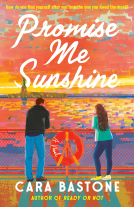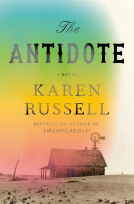
Spring Garden
by Tomoka Shibasaki
This title was previously available on NetGalley and is now archived.
Send NetGalley books directly to your Kindle or Kindle app
1
To read on a Kindle or Kindle app, please add kindle@netgalley.com as an approved email address to receive files in your Amazon account. Click here for step-by-step instructions.
2
Also find your Kindle email address within your Amazon account, and enter it here.
Pub Date Nov 07 2017 | Archive Date Sep 13 2017
Description
A sharp, photo-realistic novella of memory and thwarted hope set in modern-day Tokyo—an “unflinching . . . powerful” showcase of the best in contemporary Japanese literature (Shelf Awareness)
Divorced and cut off from his family, Taro lives alone in one of the few occupied apartments in his block, a block that is to be torn down as soon as the remaining tenants leave. Since the death of his father, Taro keeps to himself, but is soon drawn into an unusual relationship with the woman upstairs, Nishi, as she passes on the strange tale of the sky-blue house next door.
First discovered by Nishi in the little-known photo-book Spring Garden, the sky-blue house soon becomes a focus for both Nishi and Taro: of what is lost, of what has been destroyed, and of what hope may yet lie in the future for both of them, if only they can seize it.
Advance Praise
"Measured, understated and poetic at the right moments…making the novel difficult to put down." — Japan Society Journal (UK)
A "delicate, intimate novella." -- The Lady magazine
"Measured, understated and poetic at the right moments…making the novel difficult to put down." — Japan Society Journal (UK)
A "delicate, intimate novella." -- The Lady magazine
Available Editions
| EDITION | Other Format |
| ISBN | 9781782272700 |
| PRICE | $13.95 (USD) |
| PAGES | 154 |
Featured Reviews
 Mariah B, Reviewer
Mariah B, Reviewer
A soft, melancholic slice-of-life novella about the vacancies within our own hearts. Taro, a Japanese businessman, goes about his daily life for a year living in a condemned apartment building, contemplating his divorce and the passing of his father. He forms a friendship with a fellow neighbor who is obsessed with a neighboring building, and the perfect life captured in a book of photographs from it's former residences.
It is a quick, succinct story - very atmospheric. Not a lot happens, plotwise, certainly, but it captures the emotion of a moment perfectly... it's a discontented sigh, a yearning for what could have been.
 Kim R, Reviewer
Kim R, Reviewer
A beautifully written and captivating story. Emotional and heartfelt. Taro's story can resonate with us all. In some ways a study of being alone but not always of loneliness. The descriptive prose here was ever so enjoyable.
 Reviewer 203820
Reviewer 203820
Taro lives alone in one of Tokyo’s anonymous block of flats. His family is far away and they are hardly in contact, his father died already ten years ago, yet the memories of him are still alive. His neighbours, he only knows the names that were given to the flats they inhabit, but not who is living close to him. Since the flats are going to be destroyed soon, they will have to leave anyway. One day, he observes a woman walking around the sky-blue house neighbouring their block. She seems to try to look into it through the window. When she realises that she is spotted, they make contact and Nishi explains Taro why she is behaving this strangely: the house is actually quite famous, she even possesses a book about its interior and her greatest wish is to enter and have a look herself. A singular friendship forms between the two neighbours, centred around a building close but far away for them.
Tomoka Shibasaki’s novel “Spring Garden” has many typical features of what I expect from Japanese literature. First of all, the characters. We have two protagonists who seem to live a life without close connection to other people, loneliness and isolation are reoccurring themes in Japan’s novels and from the news I read about the country this really seems to be a major topic. Yet, it is not the suffering from being alone that is central, they seem to have accepted that this is just how it is for them. When they finally bond with somebody - even if it is just a weak connection like the one of neighbours – there are many societal rules which prevent an honest friendship in my opinion. E.g. when Taro is given a present he does not like, it is not easy for him and he nevertheless feels obliged to behave in a certain manner. Even to eat things he doesn’t like in order not to appear impolite.
Some aspects I found really strange and I do not know if this is the case because the character of Taro is a bit bizarre or if this is just a cultural matter which is quite far from the world I life in. Taro keeps the mortar and pestle in his kitchen cupboard with which he turned the remains of his father’s bones into powder to distribute them. They remind him of the father and he frequently thinks about him when he comes across the two utensils. Both, first the idea of working on a deceased’s bones and keeping the utensils close to pots and pans is very astonishing to me to put it politely.
The most interesting part of the novel for me was the house that Taro and Nishi go to explore, first through the book and the outside, later also from the inside. It is not only the poetical language, especially about the lighting of the colourful windows, which makes it quite impressive, but also how human boing have an impact on the outer world. Even though the walls and windows are the same, with the change of the inhabitants, the whole ambiance can change and everybody leaves his mark on his surroundings.
Readers who liked this book also liked:
Karen Thompson Walker
General Fiction (Adult), Literary Fiction, Sci Fi & Fantasy
Laura Shepherd-Robinson
General Fiction (Adult), Historical Fiction, Mystery & Thrillers


















